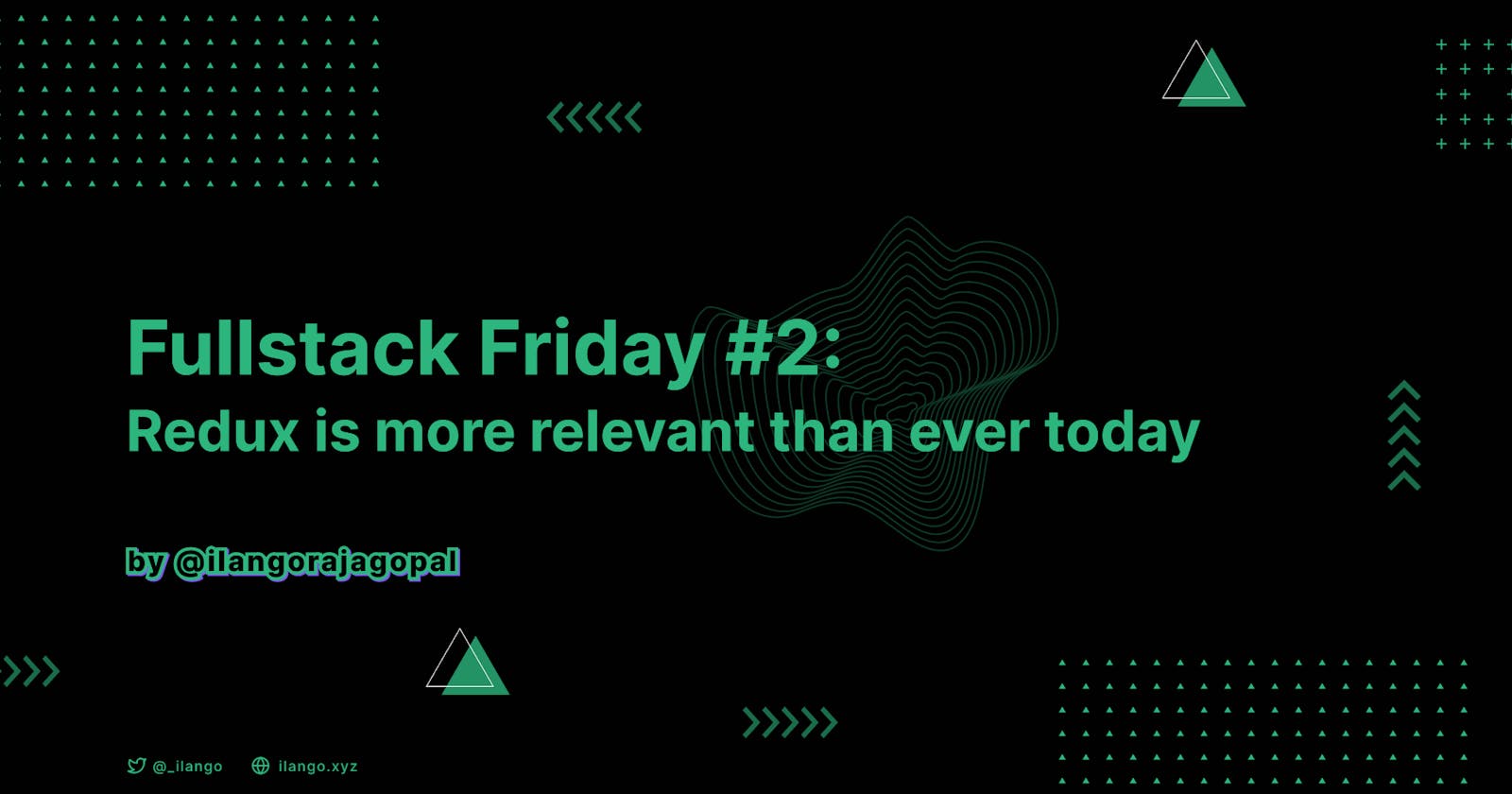It's Friday and that means a new issue of Fullstack Friday. There was so much cool stuff I read, listened to, and watched this week on web development. I've compiled the best from that list below. I hope you enjoy reading them as I did.
Preventing memory leaks in Node.js
Last week, we read about memory management in Javascript, what stacks and heaps are and how the garbage collector works. This week, I read some more about memory, specifically about preventing memory leaks in Node.js. When a block of memory goes out of scope but the garbage collector doesn't release it, it's called a memory leak. When memory leaks accumulate, Node.js and even the OS will be unable to allocate memory resulting in crashes.
This article gives us some more context on what causes memory leaks in Node.js and the best practices to prevent them from happening.
Don't count Redux out yet. It's more relevant than ever.
There have been so many opinions online recently that Redux is out and could be replaced by the Context API. We could certainly try to replace it but Context is not a state management utility. One crucial advantage Redux has is its dev tool extension which makes debugging so much easier. Redux might not be suitable for all React projects but it still has its use.
This article makes the argument that the dev tools and developer experience are not worth giving up for a marginal reduction in boilerplate code.
Next.js 11.1 replaces Babel and Terser with SWC
Alright, this is a bit of old news since Next.js v11.1 dropped last month . But one update caught my eye and that's the integration of SWC into Next.js to replace Babel and Terser. SWC is a super-fast JavaScript and TypeScript compiler written in Rust. And the creator of SWC has joined Vercel to work on improving the dev server and build performance. In early tests, this integration has already seen a 2x improvement in build time.
Stuff I liked this week
Articles
How to set up your programming LinkedIn profile
LinkedIn is one of the primary ways companies and recruiters use to hire new employees. It bodes well that having a good LinkedIn profile as a programmer opens us up to better opportunities. But how do we do it? This article explains how we can update our LinkedIn profiles as software engineers.
How we design our APIs at Slack
Developers love to work with well-designed APIs. It's especially crucial when your platform is used by hundreds of millions of users worldwide and integrates with thousands of third-party applications. In this article, engineers from Slack detail the practices they've formed while designing Slack's APIs.
Podcasts
Documentation is usually the last thing developers think about. In this episode of Ship It, Vercel's Head of Product Kathy Korevac makes an argument on why docs are part of the product and how to make it interesting.
In a follow-up to an earlier Vim episode, the hosts talk to one of Neovim's core maintainers about why it was created, differences from Vim, and using Lua for configuration. There are some more cool technical discussions about tree-sitter and fuzzy file search.
Videos
Working with dates and times in JavaScript is painful. This is why we often resort to using a third-party library like date-fns, luxon, or day.js. But there is a Stage 3 proposal for a new API that fixes how we wrangle date and time in JavaScript. It's called the Temporal API. In this video , Harry Wolff explains what the Temporal API is and walks us through some of its features.

